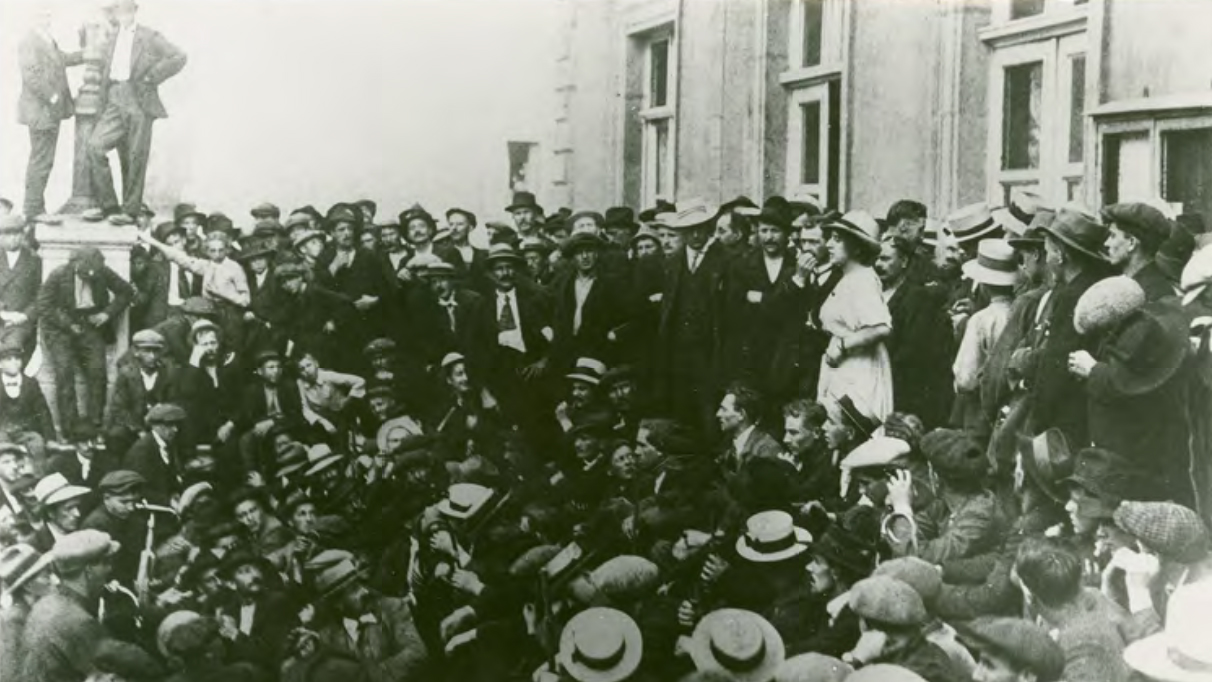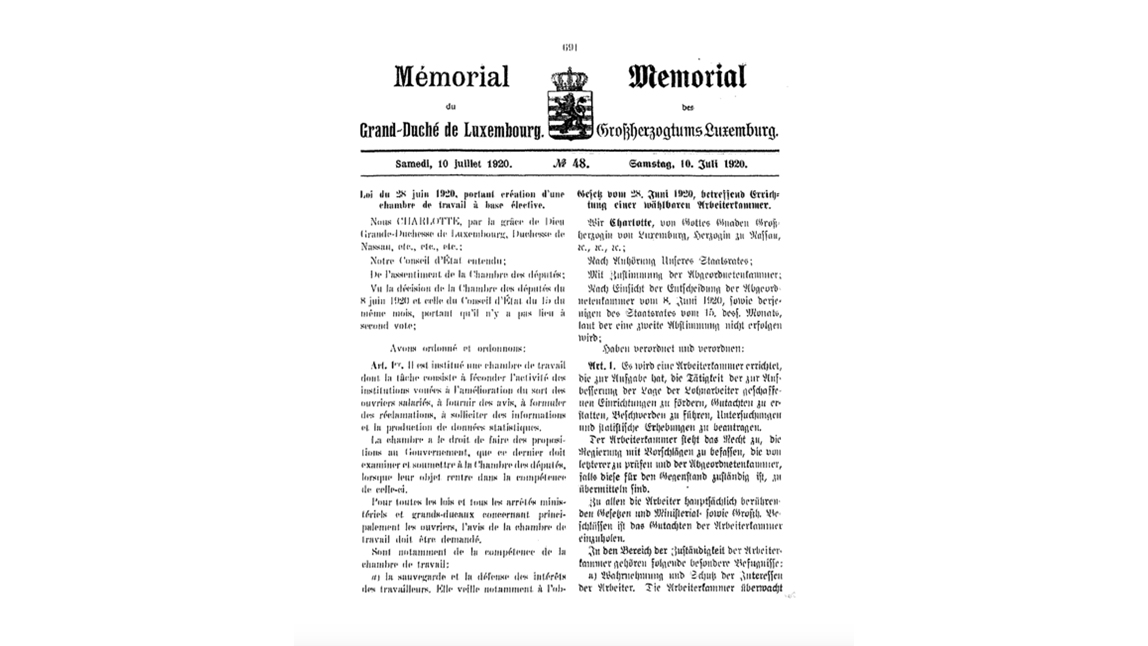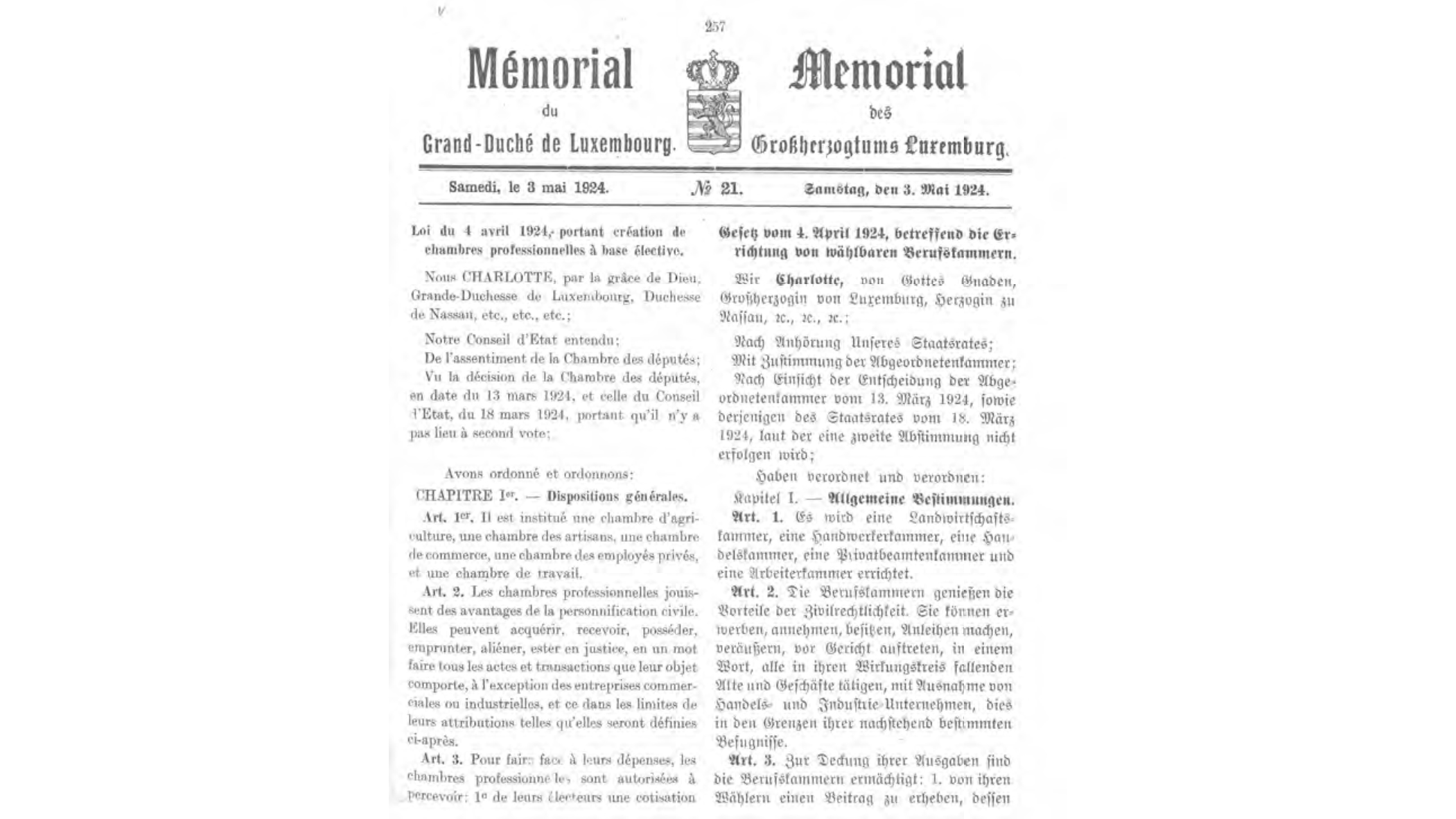On 20 February, as the United Nations observes World Day for Social Justice, Luxembourg’s Chambre des salariés (CSL) remains at the forefront of social justice representing and defending the rights and interests of employees. Since its creation 100 years ago, it has continually evolved to keep pace with dramatic shifts in the labour market, economic conditions, and the political landscape. A recent research study conducted by Estelle Berthereau at the University of Luxembourg, under an agreement with the CSL, offers valuable insight into CSL’s remarkable history, in the continuity of the history of the Chamber of Labour carried out by Denis Scuto (PI) on the 75th anniversary of the institution.
This new research sheds light on the outcome of the first global overview of all the archives of these three Chambers (Chamber of Labour, ‘Chambre des employés privés’, then CSL), which allows to understand some crucial economic and social issues at stake in the history of Luxembourg. It shows how Luxembourgish trade unions helped by these Chambers, defended the rights of workers in early 20th-century industrial Luxembourg to safeguarding employees’ interests in today’s fast-paced digital world.
The Heart of Luxembourg’s Welfare State
As Luxembourg developed its economy based on the steel industry in the late 19th century, the number of workers increased and new social issues arose. Although trade unions were created in the last half of the 19th century and the first insurance schemes (accident and pension) were set up on a modest scale in 1901 and 1913, the workers fought for greater social rights. The first idea of creating a Chamber of Workers appeared in 1918 within a commission that also called for a reduction in the working hours. This Chamber, like a ‘Parliament of Labour’, would be in charge of all the social questions of the workers and would be dealt directly by them, whose representatives would have been able to give an opinion or even decide on economic and social draft laws. This economic democracy would be based on the possibility for this Chamber to propose a law to improve the working and living conditions of the workers.
In Belgium, the Netherlands, Germany, Switzerland, Italy and other countries, such Chambers were also conceived and established, but in cooperation with employers. Only Luxembourg, following the Austrian model, developed the idea of a Chamber exclusively for employees, as one of the pillars of the construction of the welfare state.
Today, the organization represents all employees, pensioners, apprentices, and the unemployed in Luxembourg. Every five years, approximately 630,000 people participate in social elections, which play a crucial role in Luxembourg’s social and economic democracy and welfare state.
A Century of Transformation
All the social demands made by workers and left-wing Members of Parliament (such as Michel Welter) and the difficulties after the First World War (workers’ commissions, referendum and demonstration in August 1919) forced the right-wing party led by Pierre Dupong to reconsider the creation of social institutions.
On the model of the Chambre of commerce, the creation of other professional Chambers, for craftsmen or farmers, was discussed in a bill in 1920: the ‘Jacoby law’ which finally established one Chamber of Labour was debated and voted on, but never implemented. After the ‘Great Strike’ of 1921 and its repression, not one but two Chambers of Labour, the ‘Chambre des employés privés’ and the ‘Chambre de travail’, were officially founded on the workers’ side on 4 April 1924. For the right-wing party, they were a new way of training and creating a trade unionist elite able to communicate and negotiate easily and officially with the authorities. For the left-wing party and the trade unions, they were an intermediary between the social movements and the government against trade unionism. Finally, the trade unions embedded these Chambers in their organisation and their expertise. These Chambers prepared the unions to evaluate the economic and social situation in the country, gave their advices and opinions on draft laws, studied the state budget each year. Analysing the data from these institutions makes it possible to understand other alternatives in social and economic policy, which could come back in times of crisis if the government decided to take the opinion of these economic actors seriously.
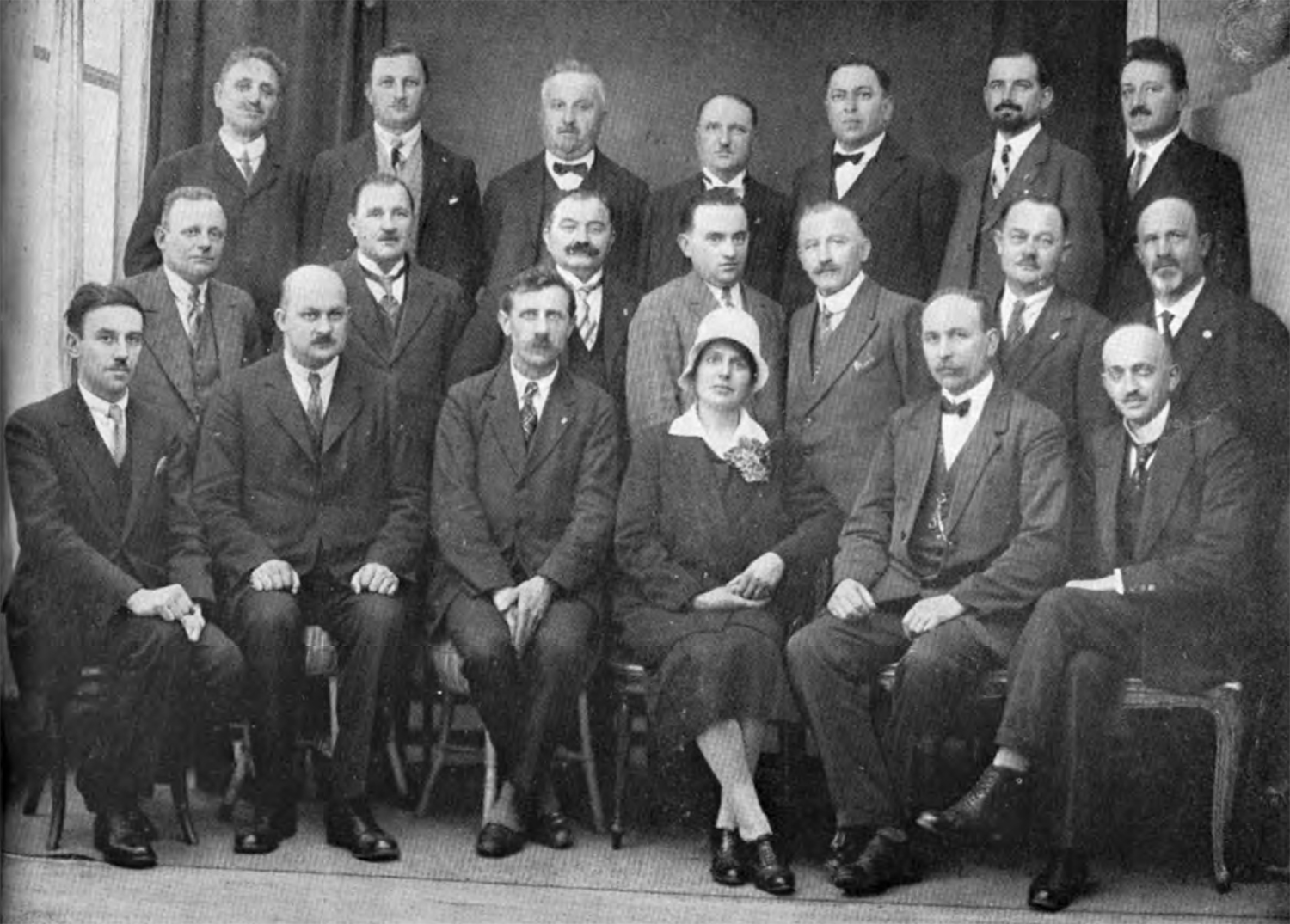
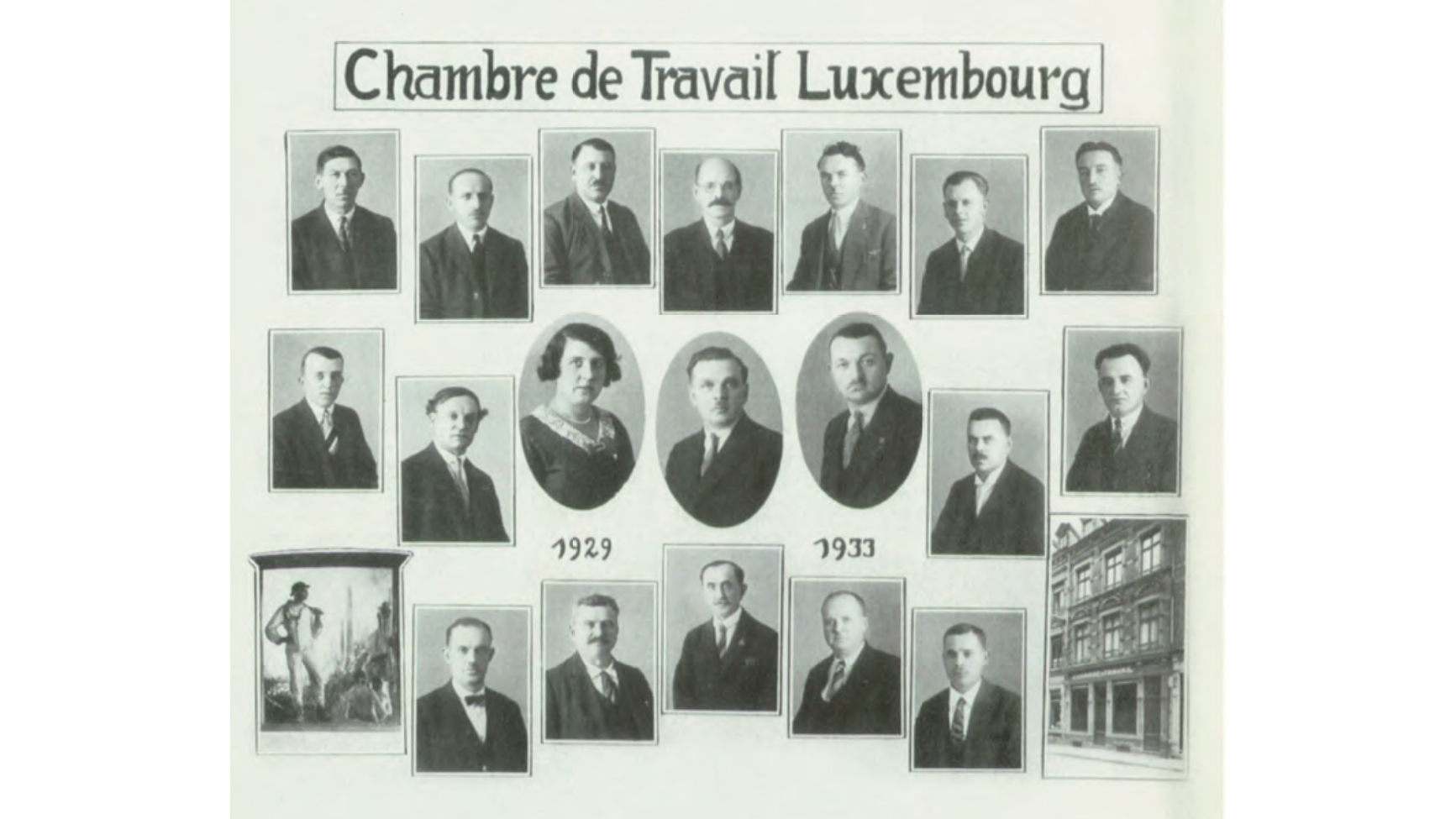
The ‘Chambre des employés privés’ in 1925 and the ‘Chambre de travail’ in 1929
Navigating Social Change and Economic Crises
Throughout the 20th century, the Chambre des Salariés played a vital role in responding to the country’s most significant challenges. During the Great Depression of the 1930s, the CSL advocated for collective work initiatives to curb rising unemployment.
In 1936-1937, after a massive movement, the trade unionists, helped by these Chambers, won the freedom of association and demonstration near the factories with the abolition of article 310 of the penal code.
In the post-war years, the CSL helped rebuild trade unions, strengthen social security, and establish economic democracy in Luxembourg.
The 1970s steel crisis prompted the creation of the Luxembourg Lifelong Learning Centre, which would go on to become a key player in developing worker training and counter-expertise.
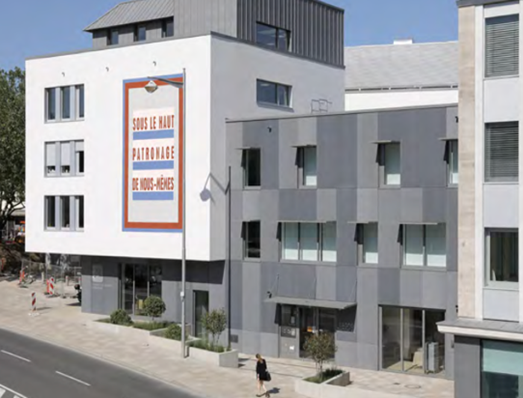
The Luxembourg Lifelong Learning Centre re-established in 2019
In 2008, the merger of the chambers represented all private employees under one roof, unifying the voices of the workforce.
Today Luxembourg faces new challenges, including the rise of the service economy and the increasing number of cross-border commuters. These changes demand innovative solutions, but the CSL’s role remains just as crucial in advocating for workers’ rights and ensuring fair treatment in this new world of work.
Looking Forward
As the Chambre des salariés celebrates a century of progress, its commitment to social justice and defending the rights of employees is unwavering. Whether addressing the challenges of the digital economy or supporting workers in the face of global economic shifts, the CSL continues to be a beacon of support and advocacy for Luxembourg’s workforce.
Last year, we celebrated the centenary of the Chambre des salariés. To mark the occasion, a new digital version of the book detailing its history was released, complete with updated appendices and notes, offering fresh insights into its century-long evolution.
For more insights into the CSL’s rich history and its ongoing efforts, the updated digital book is available for download at https://www.csl.lu/fr/csl/100ans.


